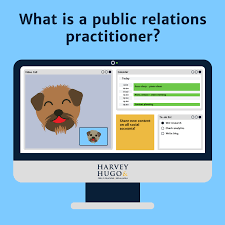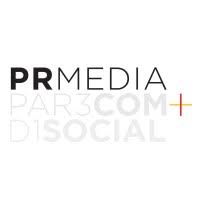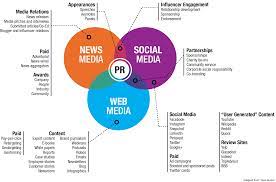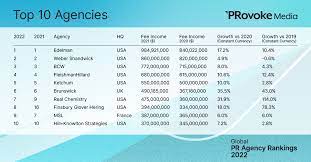The Power of PR Media: Amplifying Your Message
In today’s fast-paced and interconnected world, effective communication is crucial for businesses to thrive. Public Relations (PR) media plays a vital role in helping companies establish their brand, build credibility, and reach their target audience. Let’s delve into the power of PR media and how it can amplify your message.
Firstly, what exactly is PR media? It refers to the strategic use of various media channels to disseminate information and shape public perception. This can include traditional outlets such as newspapers, magazines, radio, and television, as well as digital platforms like websites, blogs, social media, and online publications.
One of the key benefits of PR media is its ability to generate awareness. By leveraging different media channels, businesses can reach a wider audience and increase their visibility. Whether it’s securing coverage in a respected publication or creating engaging content on social media platforms, PR media helps capture the attention of potential customers and stakeholders.
Moreover, PR media allows businesses to control their narrative. Instead of relying solely on paid advertising or marketing campaigns, PR provides an opportunity for companies to tell their story authentically. Through press releases, interviews with journalists, or thought leadership articles in industry publications, businesses can shape public opinion and build trust with their target audience.
Another advantage of PR media is its ability to enhance credibility. When a reputable news outlet or influential blogger features your company or endorses your products/services through earned media coverage (i.e., unpaid publicity), it adds a layer of legitimacy that paid advertising cannot achieve alone. This third-party validation can significantly impact how your brand is perceived by consumers.
Additionally, PR media helps businesses navigate crises effectively. In times of adversity or negative publicity, having a well-executed crisis communication strategy becomes crucial. Skilled PR professionals can help manage reputational damage by crafting timely responses and controlling the narrative across various media channels. This proactive approach can mitigate the impact of a crisis and protect the brand’s image.
Furthermore, PR media contributes to long-term brand building. By consistently sharing compelling stories, industry insights, and thought-provoking content through various media outlets, businesses can position themselves as industry leaders and experts. This establishes credibility, fosters trust with stakeholders, and creates a loyal customer base.
In conclusion, PR media is a powerful tool that can amplify your message and elevate your brand’s visibility. Its ability to generate awareness, control the narrative, enhance credibility, manage crises, and contribute to long-term brand building makes it an essential component of any comprehensive communication strategy.
To harness the full potential of PR media, it is advisable to collaborate with experienced PR professionals who understand your business objectives and target audience. By leveraging their expertise in crafting compelling stories and effectively engaging with media channels, you can unlock the true power of PR media and propel your business towards success in today’s competitive landscape.
7 Pros of PR Media: Enhancing Visibility, Building Credibility, Cost-Effective Marketing, Reaching New Audiences, Establishing Relationships, Improving Search Engine Rankings, Strengthening Reputation
- Increased visibility – PR media can help to raise awareness of a brand, product or service and get your message out to a wider audience.
- Improved credibility – A good PR campaign can help to build trust in the minds of potential customers and create more positive perceptions about a business or organisation.
- Cost effective marketing – Compared to other forms of advertising, PR media is often much cheaper and can be used in combination with other marketing activities for maximum impact.
- Reach new audiences – With the right strategy, PR media can help you target specific groups who may not have been exposed to your message before.
- Establish relationships – Working with journalists and influencers provides an opportunity to build relationships which may prove beneficial down the line for future campaigns or projects.
- Boost search engine rankings – Good quality content produced through PR activities such as press releases and interviews will often feature on news websites which are crawled by search engines, helping improve visibility online over time.
- Strengthen reputation – Positive coverage in newspapers, magazines or online helps to strengthen public opinion about a brand or organisation which can be invaluable when it comes to gaining new customers or investors
Challenges of PR Media: A Comprehensive Overview of 6 Cons
- Lack of Control
- Time-Intensive
- Uncertain Results
- Limited Targeting
- Cost Considerations
- Crisis Management Challenges
Increasing Visibility: The Power of PR Media
In today’s crowded marketplace, standing out from the competition is essential for business success. One significant advantage of PR media is its ability to increase visibility and raise awareness of a brand, product, or service. Let’s explore how PR media can help get your message out to a wider audience.
In a world where consumers are bombarded with countless advertisements and marketing messages, breaking through the noise can be challenging. This is where PR media comes into play. By strategically leveraging various media channels, businesses can capture the attention of their target audience and generate buzz around their offerings.
Through press releases, media interviews, feature stories in newspapers or magazines, and even collaborations with influential bloggers or social media influencers, PR media helps businesses reach a broader audience that may have otherwise been difficult to access. This increased visibility allows companies to introduce themselves to new potential customers who may be interested in their products or services.
Furthermore, when a brand receives positive coverage in respected publications or online platforms, it adds credibility and trustworthiness to their image. Consumers are more likely to pay attention to information presented through earned media rather than traditional advertising because it comes from unbiased sources. This third-party validation enhances the brand’s reputation and increases its appeal.
Another benefit of increased visibility through PR media is the opportunity for businesses to tell their story authentically. Unlike traditional advertising that often feels promotional, PR allows companies to share compelling narratives that resonate with their target audience. By crafting engaging stories that highlight unique aspects of their brand or showcase the value they provide, businesses can connect with consumers on a deeper level.
Moreover, increased visibility through PR media opens doors for networking and partnership opportunities. When industry professionals and potential collaborators see your brand featured in relevant publications or hear about your products/services through various media channels, it creates opportunities for meaningful connections. This can lead to strategic alliances that further enhance your business growth and expand your reach.
In conclusion, the power of PR media lies in its ability to increase visibility and raise awareness of your brand, product, or service. By leveraging different media channels, businesses can reach a wider audience, gain credibility through third-party validation, tell their story authentically, and open doors for networking opportunities. This increased visibility not only helps businesses stand out from the competition but also lays the foundation for long-term success.
To make the most of PR media’s potential, it is advisable to work with experienced PR professionals who understand your business goals and target audience. With their expertise in crafting compelling narratives and effectively engaging with media channels, they can help you navigate the ever-changing media landscape and ensure that your message reaches the right people at the right time.
Improved credibility – A good PR campaign can help to build trust in the minds of potential customers and create more positive perceptions about a business or organisation.
Improved Credibility: The Power of PR Media in Building Trust
In today’s competitive business landscape, credibility is a key factor that can make or break a company’s success. One significant advantage of PR media is its ability to improve credibility by building trust and fostering positive perceptions about a business or organization.
A well-executed PR campaign can work wonders in establishing credibility. By strategically sharing relevant and valuable information through various media channels, businesses can position themselves as industry experts and thought leaders. This positions them as credible sources of information, which in turn builds trust with potential customers.
When a reputable news outlet, influential blogger, or industry publication features a business or organization through earned media coverage, it adds an extra layer of legitimacy. This third-party validation carries significant weight and helps to enhance credibility in the eyes of the public. Customers are more likely to trust a company that has received positive coverage from trusted sources.
Furthermore, PR media allows businesses to tell their story authentically. Through press releases, interviews, or thought leadership articles, companies can shape public opinion and share their values, expertise, and achievements. This transparency helps to build trust by allowing customers to connect with the brand on a deeper level.
A strong PR campaign also plays a crucial role in managing reputation during challenging times. When faced with negative publicity or crises, effective crisis communication strategies can help mitigate reputational damage. By promptly addressing issues and controlling the narrative across various media channels, businesses can demonstrate transparency and accountability, ultimately preserving their credibility.
Moreover, consistent engagement with media outlets through PR efforts keeps businesses top-of-mind among target audiences. By sharing relevant news updates, industry insights, and valuable content through trusted media channels, companies reinforce their expertise and reliability over time. This ongoing presence fosters positive perceptions and reinforces trust among potential customers.
In conclusion, improved credibility is one of the significant benefits of PR media campaigns. By leveraging various media channels strategically and effectively, businesses can build trust in the minds of potential customers. Earned media coverage, authentic storytelling, crisis management, and consistent engagement all contribute to establishing credibility and positive perceptions about a business or organization.
To harness the full potential of PR media in improving credibility, it is advisable to work with experienced PR professionals who understand your industry, target audience, and communication objectives. Their expertise in crafting compelling narratives and engaging with media channels can help you build trust, enhance credibility, and ultimately drive success for your business.
Cost-effective Marketing: Maximizing Impact with PR Media
In today’s competitive business landscape, finding cost-effective marketing solutions is essential for companies of all sizes. Public Relations (PR) media stands out as a valuable tool that offers significant advantages, particularly when it comes to cost efficiency. Let’s explore why PR media is a smart choice for businesses looking to maximize their marketing impact while keeping costs in check.
Compared to other forms of advertising, PR media is often much cheaper. Traditional advertising methods like print ads, TV commercials, or billboards can come with hefty price tags that may not be feasible for smaller businesses or those with limited budgets. On the other hand, PR media allows companies to gain exposure through earned media coverage without the need for direct payment. This means that businesses can secure valuable publicity at a fraction of the cost associated with traditional advertising.
Moreover, PR media can be used in combination with other marketing activities for maximum impact. By integrating PR efforts into broader marketing strategies, businesses can create a cohesive and comprehensive approach that amplifies their message across multiple channels. For example, a well-crafted press release can generate media coverage while also serving as content for social media posts or email newsletters. This synergy helps stretch marketing budgets further and ensures consistent messaging across various platforms.
Additionally, PR media offers an opportunity for long-term brand building without continuous investment. Unlike paid advertisements that require ongoing spending to maintain visibility, earned media coverage obtained through effective PR efforts can have lasting effects. Once a company gains recognition and credibility through positive press coverage or thought leadership articles in reputable publications, the benefits continue even after the initial campaign has ended. This long-term impact makes PR media a cost-effective investment in building brand reputation and customer trust over time.
Furthermore, by leveraging PR media effectively, businesses can achieve higher return on investment (ROI). The relatively low cost associated with securing earned media coverage means that even small gains in brand exposure or customer engagement can yield significant results. PR media allows businesses to reach a wider audience, generate leads, and enhance brand recognition without breaking the bank. This cost-effectiveness enables companies to allocate resources to other essential business activities while still reaping the benefits of effective marketing.
In conclusion, PR media’s cost-effective nature makes it an attractive choice for businesses seeking impactful marketing strategies without straining their budgets. By utilizing PR alongside other marketing activities, businesses can maximize their reach and create a comprehensive approach that delivers results. The ability to achieve long-term brand building and higher ROI further solidifies PR media as a valuable tool in the modern marketing landscape.
Whether you’re a small business with limited resources or a larger organization looking to optimize your marketing spend, incorporating PR media into your strategy can provide cost-effective solutions that deliver maximum impact. Embrace the power of PR media and unlock new opportunities for growth and success in today’s competitive marketplace.
Expanding Your Reach: How PR Media Helps Target New Audiences
In the dynamic world of business, reaching new audiences is essential for growth and success. Public Relations (PR) media offers a valuable advantage by enabling businesses to target specific groups who may not have been exposed to their message before. With the right strategy, PR media can be a powerful tool for expanding your reach and connecting with untapped audiences.
One of the key benefits of PR media is its ability to target niche markets or demographics that align with your business goals. By identifying the characteristics, interests, and preferences of your desired audience, PR professionals can craft tailored messages and select appropriate media channels to effectively engage with these specific groups.
For instance, if you are launching a new line of sustainable fashion products, PR media can help you connect with environmentally-conscious consumers who may not have been aware of your brand previously. By strategically placing stories in eco-friendly publications or partnering with influencers who champion sustainability, you can capture the attention of this specific audience segment and create meaningful connections.
Furthermore, PR media allows businesses to penetrate new geographical markets. Whether you are expanding into international territories or targeting local communities within your region, PR professionals can help tailor your message to resonate with these specific audiences. By leveraging local media outlets or collaborating with influencers who have a strong presence in those areas, you can effectively introduce your brand to new markets and gain traction among previously untapped consumers.
Another advantage of using PR media to reach new audiences is its potential for viral or organic growth. When a well-crafted story or compelling content resonates with individuals within a particular group, they are more likely to share it within their networks. This word-of-mouth exposure can lead to increased brand visibility and attract new followers or customers who may not have encountered your message through traditional advertising methods alone.
Additionally, PR media provides an opportunity for businesses to engage with diverse communities and foster inclusivity. By targeting underrepresented groups or addressing specific social issues through PR campaigns, companies can demonstrate their commitment to diversity and social responsibility. This not only helps expand their reach but also builds a positive brand image among these communities.
In conclusion, PR media offers a valuable pro in the form of reaching new audiences. By developing a well-crafted strategy that aligns with your business objectives, PR professionals can help you connect with specific groups who may not have been exposed to your message before. Whether it’s targeting niche markets, penetrating new geographical areas, fostering organic growth, or promoting inclusivity, PR media can be an effective tool for expanding your reach and creating meaningful connections with untapped audiences.
Establish relationships – Working with journalists and influencers provides an opportunity to build relationships which may prove beneficial down the line for future campaigns or projects.
Establish Relationships: The Power of PR Media
In the realm of Public Relations (PR) media, one significant advantage is the opportunity to establish relationships with journalists and influencers. This aspect of PR opens doors that can prove to be highly beneficial for future campaigns or projects.
Building relationships with journalists and influencers is a valuable asset for any business or brand. These individuals have the power to amplify your message and reach a wider audience through their platforms. By nurturing these connections, you create a network of trusted professionals who can help you achieve your communication goals.
When working with journalists, establishing a rapport can lead to increased media coverage. By developing a relationship built on trust and mutual understanding, journalists may be more inclined to feature your brand or share your news. They may seek your insights for industry articles or invite you to contribute as an expert in their publications. This exposure not only enhances your brand’s visibility but also positions you as a thought leader within your field.
Similarly, collaborating with influencers can provide tremendous value in reaching your target audience. These individuals have cultivated loyal followings who trust their opinions and recommendations. By building relationships with relevant influencers, you gain access to their engaged audience, allowing you to promote your products or services effectively.
Moreover, these relationships extend beyond immediate benefits. Over time, as you continue working together on various campaigns or projects, trust and understanding deepen. Journalists and influencers become familiar with your brand’s values, objectives, and expertise. This familiarity enhances future collaborations as they become more attuned to what resonates best with their audience.
In addition to media coverage and reaching new audiences, established relationships offer other advantages as well. Journalists often rely on trusted sources when seeking expert opinions or industry insights for their articles. By maintaining strong relationships with them, you position yourself as a go-to resource within your field.
Similarly, influencers appreciate long-term partnerships that go beyond one-off collaborations. By nurturing these connections over time, you create brand ambassadors who genuinely believe in your products or services. Their continued support can lead to ongoing endorsements, product reviews, and even co-creation opportunities.
To make the most of this pro of PR media, it is essential to approach relationship-building with authenticity and transparency. Engage with journalists and influencers in a meaningful way by providing value, respecting their time and expertise, and fostering genuine connections. Remember that relationships are built on trust, so maintaining open lines of communication and delivering on promises is crucial.
In conclusion, establishing relationships with journalists and influencers within the realm of PR media offers numerous benefits. By nurturing these connections, you gain access to increased media coverage, reach new audiences through trusted channels, position yourself as an industry expert, and foster valuable long-term partnerships. In the ever-evolving world of communication, these relationships prove invaluable for future campaigns or projects that can propel your brand to new heights.
Boost search engine rankings – Good quality content produced through PR activities such as press releases and interviews will often feature on news websites which are crawled by search engines, helping improve visibility online over time.
Boost Search Engine Rankings: The Power of PR Media
In the digital age, search engine visibility is crucial for businesses seeking to expand their online presence. One significant advantage of PR media is its ability to boost search engine rankings and improve visibility over time. Let’s explore how good quality content produced through PR activities can positively impact your online presence.
When businesses engage in PR activities such as press releases and interviews, they have the opportunity to generate high-quality content. This content often gets featured on news websites, which are regularly crawled by search engines like Google. As a result, when your brand’s content appears on these reputable platforms, it increases the chances of being indexed and ranked higher in search engine results pages (SERPs).
Search engines value fresh and relevant content, and by leveraging PR media, you can consistently produce newsworthy stories that align with your business objectives. This continuous flow of valuable content helps search engines recognize your website as a reliable source of information, leading to improved visibility in organic search results.
Additionally, when your brand’s content appears on news websites through PR media efforts, it enhances your backlink profile. Backlinks are links from external websites that point back to your own site. Search engines consider backlinks as indicators of credibility and authority. When reputable news sites feature your content, they often include links back to your website or specific landing pages. These backlinks contribute to improving your website’s domain authority and overall search engine rankings.
Moreover, the power of PR media lies in its ability to generate earned media coverage. Unlike paid advertising or sponsored content that may be viewed with skepticism by consumers, earned media coverage provides third-party validation and credibility for your brand. When journalists or industry influencers feature your brand through PR activities, it creates authentic mentions across various online platforms. These organic mentions not only increase brand awareness but also contribute to building a positive online reputation.
It’s worth noting that boosting search engine rankings through PR media is a long-term strategy. It requires consistent efforts in producing good quality content, engaging with media outlets, and building relationships with journalists. Over time, as search engines recognize the value and relevance of your content, your website’s visibility will increase, leading to higher organic traffic and potential conversions.
In conclusion, PR media offers a valuable opportunity to boost search engine rankings and improve online visibility. By producing good quality content through press releases, interviews, and earned media coverage on reputable news websites, businesses can enhance their backlink profile and increase their domain authority. This ultimately leads to improved search engine rankings and greater online exposure.
To fully leverage the benefits of PR media for search engine optimization (SEO), it is essential to work with experienced PR professionals who understand the dynamics of digital marketing and can help craft compelling content that resonates with both journalists and search engines. By integrating PR activities into your overall SEO strategy, you can effectively enhance your brand’s online presence and drive sustainable growth in the digital landscape.
Strengthen reputation – Positive coverage in newspapers, magazines or online helps to strengthen public opinion about a brand or organisation which can be invaluable when it comes to gaining new customers or investors
Strengthening Reputation: The Value of Positive PR Media Coverage
In the realm of public relations (PR), one remarkable advantage lies in its ability to strengthen the reputation of a brand or organization. Positive coverage in newspapers, magazines, or online platforms can be invaluable when it comes to shaping public opinion and attracting new customers or investors.
When a brand or organization receives positive media coverage, it serves as a powerful endorsement. News outlets and publications are seen as trusted sources of information, and when they highlight the achievements, innovations, or positive aspects of a company, it adds credibility and legitimacy. This third-party validation is highly influential in shaping public perception.
Positive PR media coverage helps to build trust with both existing and potential customers. When people read about a company’s accomplishments or positive contributions in reputable publications, it creates a sense of confidence in the brand. It showcases that the organization is reliable, credible, and worthy of support. This trust can ultimately lead to increased customer loyalty and repeat business.
Furthermore, positive media coverage has the potential to attract new customers. When individuals come across an article or feature that highlights the strengths and successes of a brand or organization, they may be more inclined to explore what the company has to offer. They see it as an endorsement from a respected source and are more likely to consider engaging with the brand’s products or services.
In addition to attracting customers, positive PR media coverage can also appeal to potential investors. Investors seek companies with strong reputations that demonstrate stability and growth potential. When they see positive coverage highlighting an organization’s achievements or industry leadership, it instills confidence in their investment decisions. Positive media attention can help attract investors who believe in the brand’s vision and want to be part of its success story.
Moreover, strengthening reputation through positive PR media coverage creates a ripple effect. As more people become aware of a company’s positive attributes through various media channels, word-of-mouth recommendations increase. Satisfied customers and stakeholders are more likely to share their positive experiences, further enhancing the brand’s reputation and attracting even more customers and investors.
In conclusion, positive PR media coverage has the power to strengthen the reputation of a brand or organization. It builds trust, attracts new customers, and appeals to potential investors. The endorsement from trusted sources in newspapers, magazines, or online platforms can be a game-changer for businesses seeking growth and success. By leveraging the influence of PR media, organizations can shape public opinion, enhance their image, and ultimately reap the rewards of a strengthened reputation.
Lack of Control
Navigating the Lack of Control in PR Media: A Challenge for Businesses
In the realm of PR media, businesses often find themselves facing a significant con: the lack of control over how their message is ultimately portrayed by journalists or media outlets. While PR allows companies to shape their narrative, the interpretation and editing of content can sometimes lead to unintended consequences or misrepresentation.
One of the primary challenges businesses encounter is that once they release information to the media, they relinquish a certain degree of control over how it is presented. Journalists have their own editorial agendas and may choose to focus on specific aspects or angles that differ from what the company intended. This can result in a diluted message or even a complete shift in emphasis.
Furthermore, journalists may edit quotes or statements, potentially altering their original meaning. While this is often done with good intentions, such as condensing lengthy responses for brevity, it can inadvertently change the context or tone of the message. As a result, businesses may find themselves misrepresented or misunderstood by their target audience.
Another aspect that contributes to the lack of control is sensationalism within the media industry. In an effort to capture attention and generate headlines, journalists may exaggerate certain aspects or emphasize controversial elements. This can lead to a distortion of facts and create negative perceptions that are difficult for businesses to rectify.
Moreover, in today’s digital age, information spreads rapidly through social media platforms and online publications. Once a story gains traction, it can be challenging for businesses to correct any inaccuracies or misconceptions. Even if they attempt to provide clarifications or issue corrections, these efforts may not receive the same level of attention as the initial story.
To mitigate these challenges and retain some control over their messaging, businesses should adopt proactive strategies when engaging with PR media. This includes:
- Developing strong relationships with journalists: By establishing trust and open lines of communication with reporters who cover their industry, businesses can increase the likelihood of their message being accurately conveyed.
- Crafting clear and concise messages: Providing journalists with well-prepared press releases or statements can help ensure that the core message is understood and reduces the risk of misinterpretation.
- Monitoring media coverage: Regularly monitoring media outlets and social media platforms allows businesses to identify any inaccuracies or misconceptions quickly. Promptly addressing these issues can help mitigate potential damage to their reputation.
- Engaging in transparent communication: Being open and transparent with the public, stakeholders, and the media can help businesses maintain credibility even in challenging situations. Addressing concerns or criticisms promptly demonstrates a commitment to honest communication.
While the lack of control in PR media is indeed a challenge, it should not deter businesses from utilizing this powerful tool. By understanding this con and implementing proactive strategies, companies can navigate these obstacles effectively and maximize the benefits that PR media offers in shaping their narrative and reaching their target audience.
Time-Intensive
Time-Intensive: A Con of PR Media
While Public Relations (PR) media offers numerous benefits, it’s important to acknowledge that it also comes with its own set of challenges. One significant drawback is the time and effort required to execute effective PR media strategies.
Building relationships with journalists is a fundamental aspect of PR media. It involves identifying relevant media outlets, researching journalists’ interests, and reaching out to them with tailored pitches. This process takes time and persistence to establish meaningful connections that can lead to media coverage.
Crafting compelling press releases is another time-intensive task in PR media. These documents need to be meticulously written, ensuring they capture attention and convey key messages effectively. From identifying newsworthy angles to editing and proofreading, every step demands careful attention to detail.
Coordinating interviews with journalists can also be a time-consuming endeavor. Scheduling conflicts, logistical arrangements, and ensuring proper preparation for spokespersons all require dedicated effort. However, securing interviews can be highly valuable for generating media coverage and building relationships with journalists in the long run.
Managing media inquiries is an ongoing responsibility in PR media. Promptly responding to queries from journalists demonstrates professionalism and fosters positive relationships. However, this requires constant monitoring of email inboxes or designated communication channels to ensure timely responses.
To mitigate the time-intensiveness of PR media, businesses can consider partnering with experienced PR professionals or agencies who specialize in managing these aspects efficiently. They have the expertise and industry connections to streamline processes, allowing businesses to focus on their core operations while still reaping the benefits of effective PR media strategies.
It’s crucial for businesses engaging in PR media efforts to allocate sufficient resources and plan strategically. By recognizing the time investment required upfront, companies can better manage expectations and allocate appropriate personnel or budgets for their PR initiatives.
In conclusion, while effective PR media can yield valuable results for businesses, it’s important to acknowledge that it demands significant time and effort. By understanding this con and planning accordingly, businesses can navigate the challenges and leverage the power of PR media to amplify their message and achieve their communication goals.
Uncertain Results
Navigating the Uncertain Results of PR Media
In the realm of communication, Public Relations (PR) media is a powerful tool that can help businesses reach a wider audience, build credibility, and shape public perception. However, like any strategy, it’s important to acknowledge its potential drawbacks. One such con of PR media is the uncertain nature of its results.
Unlike paid advertising, where businesses have more control over the placement and timing of their messages, PR media outcomes are not guaranteed. While companies can craft compelling press releases or pitch stories to journalists, securing coverage or positive publicity relies on several factors beyond their control.
Firstly, newsworthiness plays a significant role in determining whether a story will be covered by media outlets. Journalists are constantly bombarded with numerous press releases and story ideas. They have to make choices based on what they believe will resonate with their audience and align with their editorial guidelines. This means that even if a business believes its story is newsworthy, there’s no guarantee it will gain media attention.
Furthermore, competition for attention in the media landscape is fierce. With countless businesses vying for coverage and limited space available in newspapers or airtime on television or radio programs, it becomes increasingly challenging to secure coveted spots. The sheer volume of stories competing for attention makes it difficult for every business to receive widespread coverage.
Additionally, personal preferences and biases of journalists or editors also come into play when determining which stories get covered. While journalists strive to be objective in their reporting, individual opinions and editorial judgments can influence the selection process. This subjectivity introduces an element of uncertainty as businesses cannot predict how their stories will be received by different media professionals.
However, despite these uncertainties, it’s important to remember that PR media still holds immense value. While outcomes may not always be guaranteed, successful PR campaigns can yield significant results by generating awareness, enhancing credibility through earned media coverage, and shaping public opinion positively.
To navigate the uncertain results of PR media, businesses can employ several strategies. Firstly, it’s crucial to craft compelling and newsworthy stories that are relevant to the target audience. This increases the chances of capturing journalists’ attention and securing coverage.
Building strong relationships with journalists and media professionals can also prove beneficial. By establishing trust and understanding their preferences, businesses can increase their chances of getting their stories noticed. Engaging in meaningful conversations, providing valuable insights, and offering exclusive access or expert opinions can help foster these relationships.
Moreover, diversifying communication strategies can mitigate the uncertainty associated with PR media. By combining PR efforts with other marketing tactics such as paid advertising, content marketing, or social media campaigns, businesses can create a more comprehensive approach that reaches their target audience through multiple channels.
In conclusion, while uncertain results are a con of PR media, it should not discourage businesses from incorporating it into their communication strategies. By understanding the factors influencing coverage and adopting proactive approaches to storytelling and relationship-building, businesses can maximize their chances of achieving successful outcomes in the dynamic world of PR media.
Limited Targeting
The Limitations of PR Media: Targeting Challenges
Public Relations (PR) media undoubtedly offers numerous benefits for businesses looking to amplify their message and increase their brand visibility. However, it is important to acknowledge that PR media has its limitations, particularly when it comes to precise targeting. Let’s explore this con of PR media and why businesses seeking specific demographic or niche market reach may find other marketing channels more effective.
While PR media can reach a wide audience through various outlets, such as newspapers, magazines, online publications, and social media platforms, it may not always provide the level of targeting that some businesses require. Unlike certain marketing channels that allow for granular audience segmentation and precise control over who sees a particular message, PR media tends to have a broader reach.
For businesses with specific target demographics or niche markets in mind, this limited targeting capability can be a drawback. It may result in a less efficient use of resources if the message reaches individuals who are not part of the intended audience. In such cases, alternative marketing channels like paid advertising or digital marketing strategies might offer more precise control over targeting specific customer segments.
Moreover, while PR media can generate awareness and enhance credibility through earned media coverage in reputable outlets, it does not guarantee that the message will reach the desired demographic or niche market. The content shared through PR efforts is often subject to editorial discretion and may not always align perfectly with the target audience’s interests or preferences.
However, it is worth noting that despite these limitations, PR media can still indirectly influence targeted audiences by shaping public opinion and building brand reputation. By strategically crafting compelling stories and thought leadership content tailored to resonate with specific demographics or niche markets within broader media channels, businesses can increase their chances of reaching their intended audience.
To overcome the targeting challenges associated with PR media, businesses can adopt an integrated approach that combines various marketing channels. By leveraging both PR strategies for broad awareness and targeted advertising for precise demographic reach, companies can maximize their communication efforts and achieve a more comprehensive marketing mix.
In conclusion, while PR media offers numerous advantages for businesses, it is important to recognize its limitations in terms of precise targeting. For businesses seeking to reach specific demographics or niche markets with utmost precision, alternative marketing channels that provide more granular control over audience segmentation may be more suitable. However, by adopting an integrated approach and combining PR media with other marketing strategies, businesses can effectively navigate the challenges of limited targeting and achieve their communication goals.
Cost Considerations
Cost Considerations: Balancing the Benefits and Expenses of PR Media
In the realm of communication strategies, PR media is often hailed as a cost-effective alternative to traditional advertising. However, it’s important to acknowledge that there are still expenses involved in implementing effective PR campaigns. For small businesses with limited budgets, this can pose a constraint.
One of the primary costs associated with PR media is hiring experienced PR professionals or agencies. These experts possess the knowledge and skills necessary to craft compelling messages, engage with media channels, and navigate the complexities of reputation management. Their expertise comes at a price, which may be challenging for businesses operating on tight budgets.
Additionally, there may be additional costs involved in executing successful PR campaigns. This can include expenses related to creating press kits, organizing events or press conferences, conducting market research, or producing high-quality content for various media platforms. These investments are essential for achieving desired outcomes but should be carefully considered within budgetary limitations.
For small businesses seeking to maximize their return on investment (ROI), it becomes crucial to assess the potential benefits against the associated costs. While PR media offers advantages such as increased visibility, credibility building, and brand recognition, it’s important to evaluate whether these benefits outweigh the financial implications.
There are several strategies that small businesses can adopt to address cost considerations while still leveraging the power of PR media. Firstly, exploring DIY options can be a viable approach for those with limited budgets. By investing time and effort into understanding PR best practices and utilizing available resources such as online guides and tools, businesses can implement basic PR strategies themselves.
Another option is to collaborate with freelance PR professionals who offer their services at more affordable rates compared to full-scale agencies. This allows businesses to tap into industry expertise while managing costs more effectively.
Furthermore, prioritizing specific areas of focus within PR media can help optimize resources. By identifying key target audiences and selecting relevant media channels that align with business objectives, companies can streamline their efforts and allocate resources more efficiently.
Lastly, building relationships with local media outlets or industry-specific publications can provide opportunities for cost-effective PR exposure. Engaging in community events, submitting press releases, or offering expert insights can help generate media coverage without significant financial investment.
While cost considerations are a valid con of PR media, it’s important to remember that effective communication strategies are an investment in long-term success. By carefully assessing budgetary constraints and exploring alternative approaches, small businesses can still harness the benefits of PR media within their financial means.
Ultimately, finding the right balance between cost and benefit is key. By strategically allocating resources and exploring creative solutions, small businesses can leverage the power of PR media to enhance their brand presence and achieve their communication goals while managing costs effectively.
Crisis Management Challenges
Crisis Management Challenges: Navigating the Waters of PR Media
In the realm of Public Relations (PR) media, one cannot overlook the importance of crisis management. While PR media can undoubtedly assist in effectively managing crises by controlling the narrative, it also presents its own set of challenges when dealing with negative publicity or reputational damage. Responding promptly to crises requires expertise in crisis communication management to mitigate potential harm to the brand’s image.
One significant challenge that arises during a crisis is the speed at which information spreads through various media channels. In today’s digital age, news travels fast, and negative stories can quickly go viral, potentially causing irreparable damage to a company’s reputation. The pressure to respond swiftly and effectively becomes paramount.
Crafting an appropriate response that addresses the concerns of stakeholders while maintaining transparency is another challenge faced during a crisis. It requires careful consideration and strategic communication to strike a balance between protecting the brand’s image and being honest and accountable for any mistakes or missteps. Failure to handle this delicate balance can exacerbate the crisis further.
Moreover, managing multiple media channels simultaneously adds complexity to crisis management efforts. With traditional outlets like newspapers and television alongside digital platforms such as social media and online publications, monitoring and responding across these diverse channels can be overwhelming. Each channel has its own unique dynamics and audience, requiring tailored approaches for effective communication.
Another challenge is anticipating potential crises before they occur. Proactive crisis management involves identifying potential risks, preparing response strategies in advance, and establishing protocols for quick action when needed. However, predicting every possible scenario can be difficult, leaving businesses susceptible to unexpected crises that require immediate attention.
Furthermore, managing public perception during a crisis is an ongoing challenge. Negative publicity can tarnish a brand’s image significantly, making it crucial to regain trust and rebuild credibility with stakeholders. This process takes time and careful navigation through PR media channels while consistently conveying key messages that address concerns head-on.
To overcome these challenges, businesses must invest in robust crisis communication management. This involves having a well-prepared crisis response plan, including clear protocols and designated spokespersons who can effectively communicate with the media and stakeholders. Engaging with experienced PR professionals who specialize in crisis management can provide invaluable guidance during these critical moments.
In conclusion, while PR media can be a powerful tool for managing crises, it is not without its challenges. Responding promptly and effectively requires expertise in crisis communication management to mitigate potential harm to a brand’s image. By acknowledging and preparing for these challenges, businesses can navigate the complex waters of PR media during times of crisis, safeguarding their reputation and emerging stronger on the other side.









